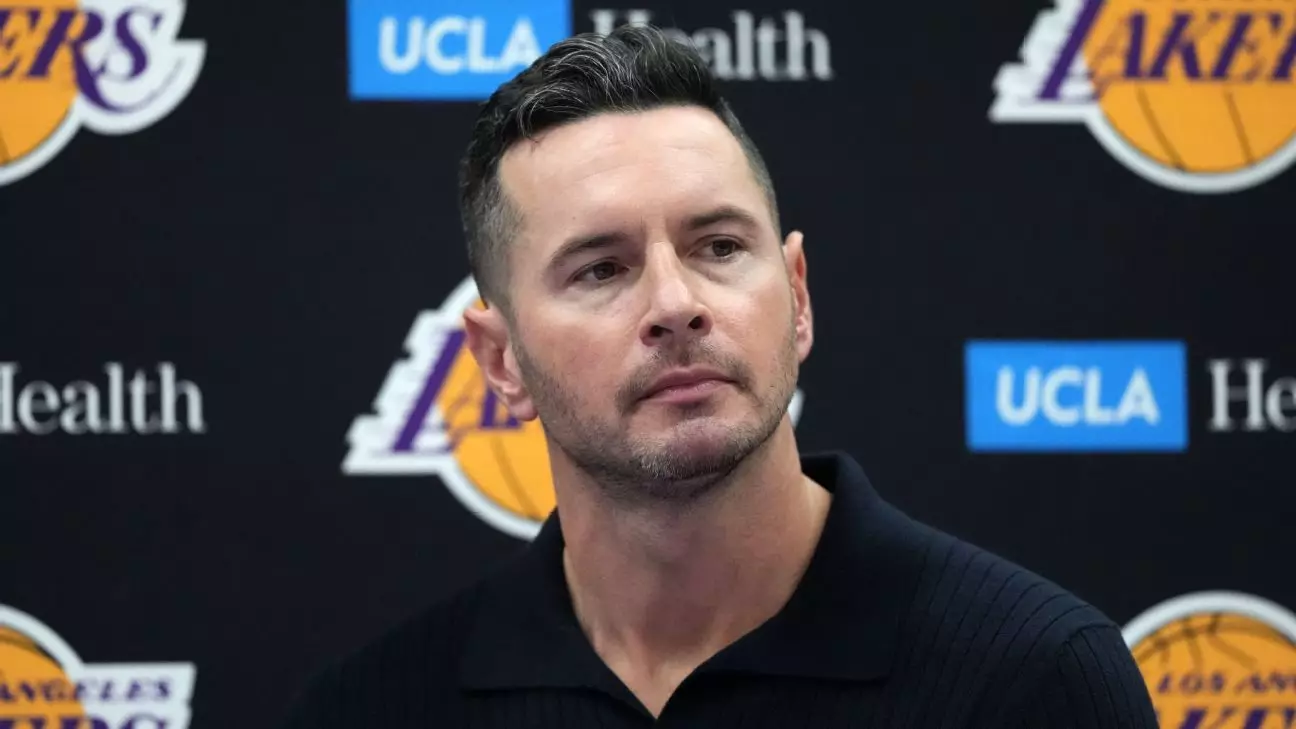The world of sports is often characterized by rapid changes, both on and off the field. Notably, the transition of players to coaching roles can demonstrate how relationships forged in the heat of competition evolve as they navigate new professional avenues. JJ Redick’s recent journey, shifting from a media commentator to the head coach of the Los Angeles Lakers, showcases not only the intricacies of these changes but also the complicated dynamics between coaches and their players. His recent discussion about Doc Rivers, under whom he played during his tenure with the LA Clippers, underlines the challenges athletes face as they step into leadership roles.
The Burdens of Past Relationships
As Redick embarks on his coaching career, the accountability that comes with the role surfaces sharply in his reflections on past criticisms. During a recent game against the Milwaukee Bucks, led by Rivers, he expressed a desire to move beyond his critical assessment of Rivers from back in February. That appearance on ESPN’s *First Take* was marked by an emotional tirade against Rivers’ coaching style, where he highlighted tendencies to deflect blame and lack accountability.
„Doc, we get it… it’s always an excuse,“ Redick had stated passionately, underscoring a common sentiment in competitive sports: the urge for honest feedback. Redick’s retrospective acknowledgment of his anger in those statements indicates an essential lesson for aspiring coaches: the importance of delivering criticism with tact and understanding, keeping in mind the human element of sport.
Navigating this newfound role, Redick has also taken the time to reflect, admitting he would alter the manner in which he expressed his critique of Rivers if given a second chance. „I regret my tone,“ he openly stated, illustrating a crucial understanding of empathy within team dynamics. This admission underscores the complexity inherent in relationships between players and coaches—they often come laden with unspoken tension and historical context that can complicate open communication.
The transition from analyst to coach means shifting one’s perspective from external observation to internal leadership, placing Redick in a position where he must now mentor others while managing the repercussions of past criticisms. The reflective nature of his statements highlights the maturity required for success in this new environment.
Contrasting Redick’s journey are Rivers‘ insights into their past interactions. The veteran coach has stated that any discord between him and Redick was primarily one-sided, reaffirming the realities that coaches frequently face—namely, pouring their hearts into a team while often receiving little recognition or appreciation from players. “Love is often rejected,” Rivers articulated, encapsulating the bittersweet nature of coaching. His acknowledgement that many players come to understand their coach’s intentions over time speaks to the long-term development inherent in sports relationships.
This perspective is crucial, as it reflects a universal truth within team sports: the need for trust and communication. Coaches like Rivers often find themselves in a position of vulnerability, where their efforts might not yield immediate emotional reciprocation from players, leading to complexities that can define a team’s chemistry.
The Coaching Carousel and Its Aftermath
The coaching dynamics extend beyond Redick and Rivers to encompass the experiences of others as well. Darvin Ham, who Redick replaced at the Lakers, remains a focal point in discussions about coaching success and failures. His time with the Lakers ended amid mixed reviews from players, like point guard D’Angelo Russell, who remarked about the team’s struggles. As Ham takes on a new role as an assistant coach for the Bucks, he appears focused on positive outcomes from his tenure, asserting that his influence helped improve the team significantly during his period as head coach, despite the challenges faced.
A coach’s impact can often linger after their departure, manifesting through players’ remarks or the overall ambiance within a program. These layers reveal the intricate web of relationships that characterize the NBA, where a single coaching change can shift a roster’s dynamics. The dichotomy of perspectives between players and coaches paints a vivid picture of the often turbulent nature of sports, where loyalty, accountability, and personal growth intersect.
In the world of professional basketball, individual narratives intertwine within the larger story of a team’s journey. As JJ Redick transitions into his coaching role, his experience highlights the importance of communication, reflection, and acknowledgment of past relationships, showcasing a profound understanding of the challenges that come with leadership. The intricate dynamics between players and coaches, as exemplified by figures like Rivers and Ham, serve as reminders of the emotional investments made at every level of sport. Ultimately, successful coaching depends on recognizing and respecting these complex interactions, enabling players and coaches alike to grow both individually and collectively as part of a cohesive unit.


Napsat komentář